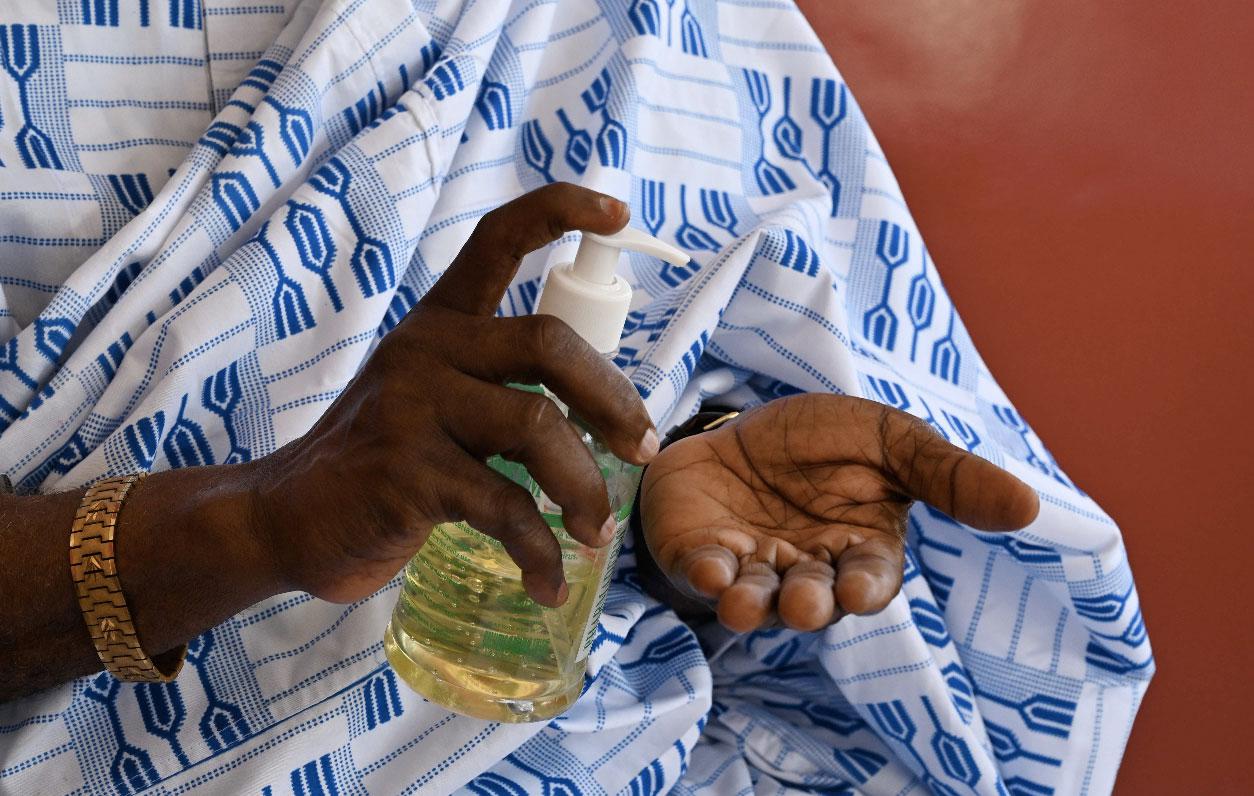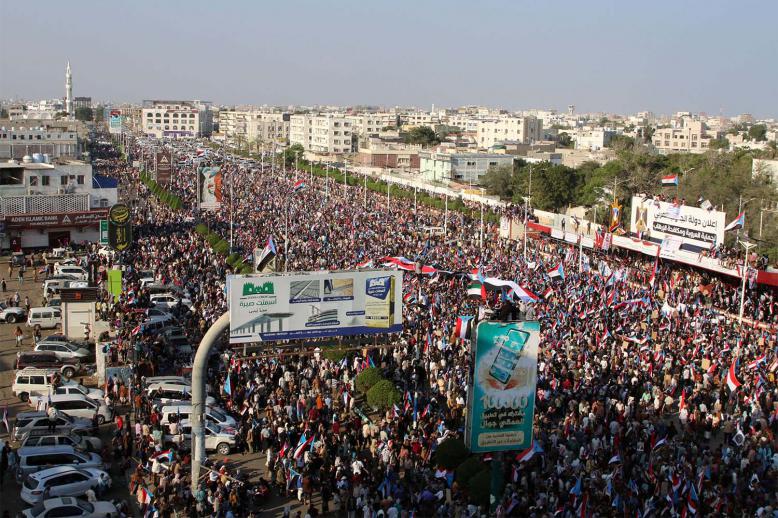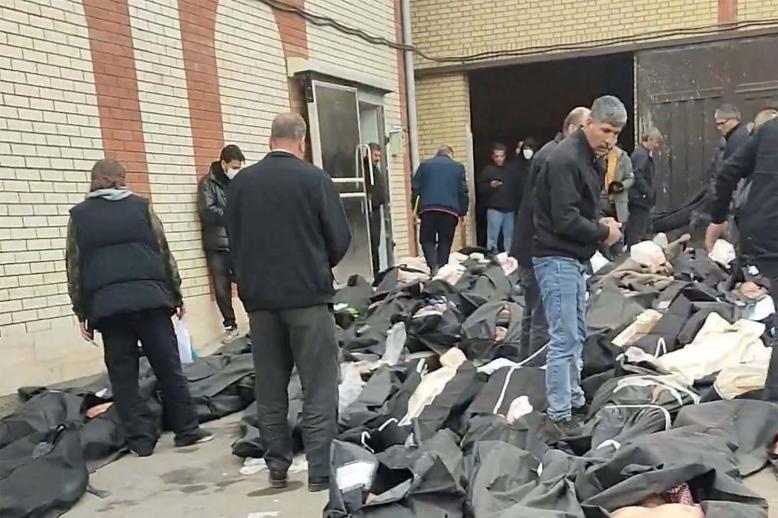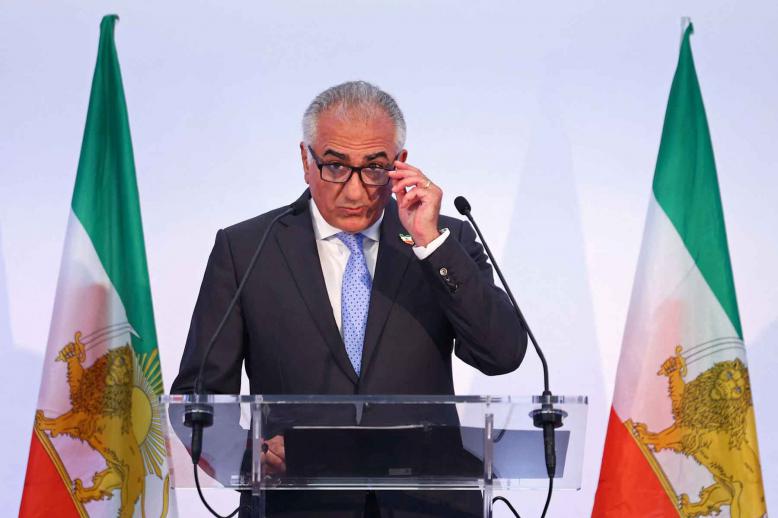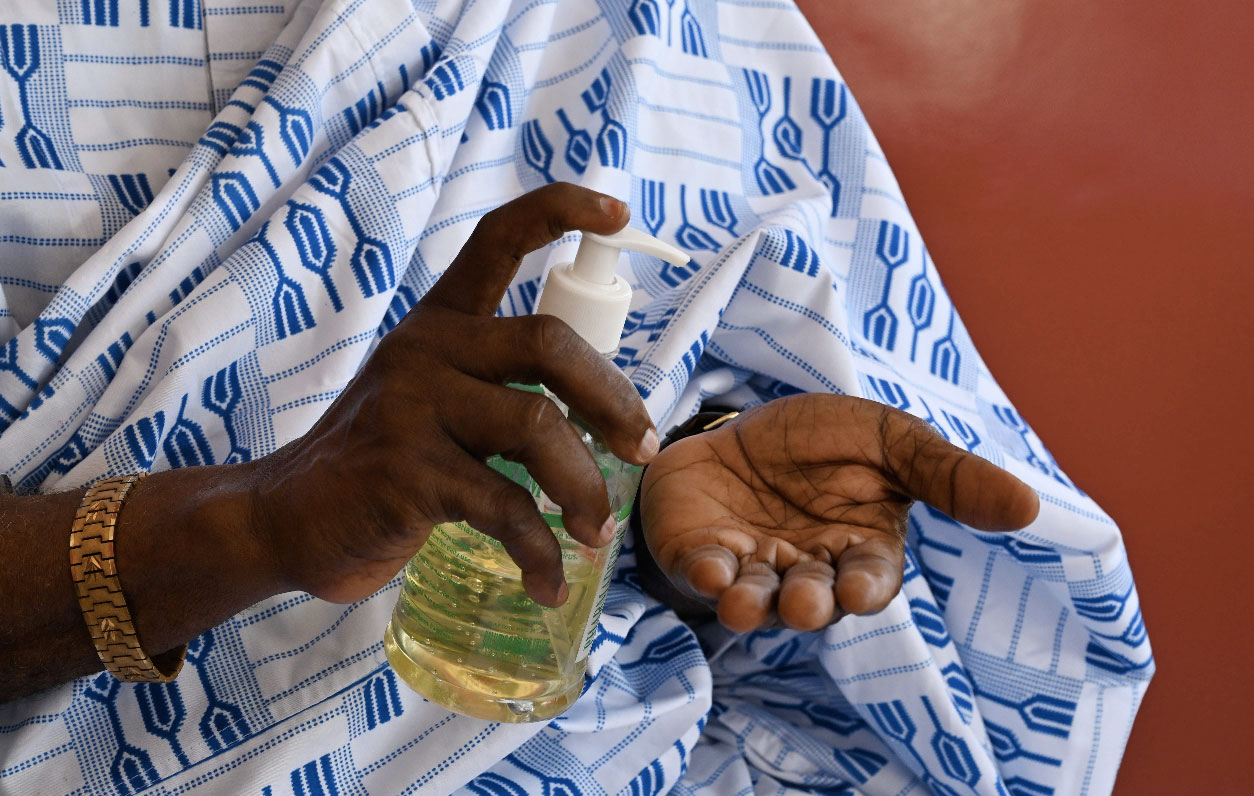Coronavirus cases surge as world enters recession
PARIS - As Europe and the United States reel from a staggering surge in coronavirus deaths, aid groups warn that without measures millions could die in low-income countries and war zones such as Syria and Yemen, where hygiene conditions are already dire.
The outbreak has infected more than 600,000 people and killed over 28,000 around the world after emerging in China in December last year. On Saturday, grim new death tolls from Italy and Spain came as the IMF confirmed the world economy has plunged into a historic slump, and the US invoked wartime procurement powers.
The United States now has the world's highest single number of COVID-19 cases but per capita European nations are still the worst hit, with emergency services struggling to cope.
In Britain, the men leading the country's fight against the coronavirus - Prime Minister Boris Johnson and his Health Secretary Matt Hancock - have both tested positive for COVID-19.
Spain recorded 832 fatalities in 24 hours, bringing its toll to 5,690, second in the world only to Italy, which confirmed a one-day record of 969 on Friday.
The European Union economy has already been disrupted by border closures and stay-at-home orders, and Italian Prime Minister Giuseppe Conte warned that the bloc could lose it legitimacy.
"If Europe does not rise to this unprecedented challenge, the whole European structure loses its raison d'etre to the people," he told the Il Sole 24 Ore newspaper. Italy, backed by France and Spain, wants Europe to come up with a stronger financial response to the crisis, but Germany and the Netherlands are resisting calls to pool national debts.
Vulnerable states
On Friday, IMF chief Kristalina Georgieva said massive spending will be needed to help developing nations, warning: "It is clear that we have entered a recession."
Iran announced 139 more deaths - raising the official death toll to 2,517. Iran has had the worst outbreak of the coronavirus in the Middle East, with many cases in other states in the region being linked back to people who had travelled from Iran.
India sealed off a dozen Punjab villages that had been visited by a guru now known to be infected and a possible "super-spreader".
In South Africa, Johannesburg police resorted to rubber bullets to enforce social distancing on a crowd queueing for supplies outside a downtown supermarket during a national lockdown.
Across Africa, the official numbers are still relatively low with 83 deaths and over 3,200 confirmed cases on Friday, according to the African Union. But aid groups are sounding the alarm on the potentially devastating consequences of a severe outbreak in low-income and conflict-ridden countries, where healthcare systems are in tatters and hygiene conditions poor.
"Refugees, families displaced from their homes, and those living in crisis will be hit the hardest by this outbreak," said the International Rescue Committee (IRC) in a statement.
Misty Buswell from the IRC said areas like the last rebel-held province in war-torn Syria, Idlib, which was already enduring a humanitarian crisis before the pandemic started, were particularly at risk.
"A lack of food, clean water and exposure to cold weather have already left hundreds of thousands of people in poor health, making them even more vulnerable," said Buswell, adding the devastation in Idlib could be "unimaginable".
Writing in Foreign Policy magazine, analyst Steven A. Cook warned that a coronavirus outbreak in Idlib could have drastic consequences for the wider world, causing a "second wave" of coronavirus by travelling to neighbouring states and beyond.
Leaders "around the world will likely stand aside—as they have done throughout Syria’s descent into violence—and watch COVID-19 explode all over Idlib and ultimately their own countries," Cook said.
'Not enough'
Around the world three billion people lack access to running water and soap, which are the most basic weapons of protection against the virus, UN experts warned.
"Frequently washing hands is the most effective way to protect against the coronavirus, but what will more than half the Yemeni people who don't have access to safe water do?" the International Committee of the Red Cross in Yemen tweeted Sunday.
UN Secretary General Antonio Guterres issued a stark warning last week: "If we let coronavirus spread like wildfire - especially in the most vulnerable regions of the world - it would kill millions of people."
The UN chief announced a humanitarian relief plan on Wednesday, featuring an appeal for $2 billion dollars to help the world's poorest and most vulnerable people.
"But we already know that it won't be enough," said Delphine Pinault, Uganda country director for the humanitarian organisation Care.
After G20 nations pledged $20 trillion for the global economy to counter forecasts of a deep recession, international aid agency Oxfam also said even this was insufficient.
"On the day that Imperial College London has warned that close to 40 million lives could be lost without urgent action, the world's richest governments are still only warming up to the scale of the task," said Chema Vera, Oxfam's interim executive director.
In a separate blog piece, Vera called on G20 nations to cancel debt of low-income countries. "If they pay the debt that they have today, they will be able only to minimally protect their people," he said.
The lack of healthcare infrastructure is another problem faced by poorer countries to deal with the pandemic.
France has 7,000 intensive care beds, compared to 100 or even a dozen in other less well-off nations. "In the most serious cases we won't be able to do anything," said Isabelle Defourny, head of operations at Doctors Without Borders (MSF).
'Race against time'
Meanwhile, relatively positive news emerged from China as two months of almost total isolation appear to have paid off in Wuhan, where the virus first emerged, as the city was partially reopened.
Since January, residents have been forbidden to leave, with roadblocks installed and millions subjected to dramatic restrictions on their daily life. But on Saturday people were allowed to enter the city, and most of the subway network restarted. Some shopping centres will open their doors next week.
But imposing a lockdown and keeping infected people in quarantine will be difficult in countries where a lack of social protection measures will force people to work.
It remains unclear whether the virus will develop in the same way across the globe. The climate and the coexistence with other viruses may affect COVID-19, said expert in infectious diseases for Action Against Hunger (ACF) Dieynaba N'Diaye.
Demographics in Africa - where 70 percent of the population is under the age of 30 - may also modify the trajectory of the virus, as older generations are particularly vulnerable.
And several outbreaks of Ebola in western African nations have provided governments with previous experience of dealing with an epidemic.
But aid groups are now in a race against time.
"We can't stop the coronavirus pandemic, it's everywhere. But we can slow it down and buy time to prepare ourselves," said MSF's Defourny.
"The window of opportunity is a matter of weeks," added N'Diaye.
The World Health Organization's regional director for Africa warned the continent faced a "dramatic evolution" of the pandemic.


